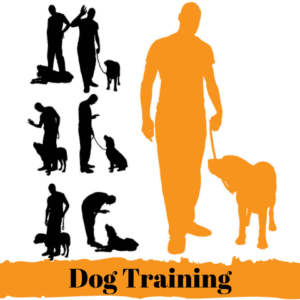The best food for allergic dogs typically consists of limited ingredient diets with novel protein sources. Dogs with food allergies require special attention to their diet. Identifying and avoiding trigger ingredients is crucial for maintaining their health and comfort.
Many commercial dog foods contain common allergens like beef, chicken, dairy, and grains. Switching to hypoallergenic options can provide relief for sensitive pups. These specialized diets often feature unique protein sources such as duck, rabbit, or fish paired with easily digestible carbohydrates.

Consulting with a veterinarian is essential for developing an appropriate meal plan. They may recommend an elimination diet to pinpoint specific allergens affecting your dog. Once identified, carefully selecting treats and supplements that align with your dog’s dietary needs helps ensure comprehensive allergy management.
Best Food for Allergic Dogs
Food allergies can cause significant discomfort for dogs. Recognizing common allergens, identifying symptoms, and managing environmental factors are crucial steps in addressing canine allergies.
Common Dog Food Allergens
Certain ingredients frequently trigger allergic reactions in dogs. Beef, dairy, chicken, and wheat top the list of common culprits. Eggs, soy, and lamb can also cause issues for some canines.
Fish and rabbit are less common allergens, making them potential alternatives for sensitive dogs. Novel protein sources like venison or duck may be recommended for dogs with multiple allergies.
Preservatives and artificial additives in commercial dog foods can also trigger reactions in some pets. Reading ingredient labels carefully is essential for identifying potential problem foods.
Identifying Allergies: Symptoms and Diagnosis
Dogs with food allergies often exhibit skin-related symptoms. Itchy skin, especially on the paws, face, and ears, is a hallmark sign. Excessive scratching, licking, or chewing of these areas may occur.
Gastrointestinal issues can also indicate food allergies. Vomiting, diarrhea, and frequent bowel movements might be present. Some dogs experience both skin and digestive symptoms.
Veterinarians diagnose food allergies through elimination diets and food trials. This process involves feeding a novel protein source for several weeks, then reintroducing potential allergens to identify triggers.
Managing Environmental Allergies
Environmental allergies often coexist with food allergies in dogs. Pollen, dust mites, and mold are common triggers. These allergies can exacerbate food allergy symptoms, making management more complex.
Regular bathing with hypoallergenic shampoos can help remove allergens from a dog’s coat. Air purifiers and frequent vacuuming can reduce indoor allergens.
Antihistamines or other medications may be prescribed to manage environmental allergy symptoms. Immunotherapy shots can be effective for long-term management in some cases.
Identifying and minimizing exposure to environmental triggers is key. This may involve keeping dogs indoors during high pollen days or using protective boots during walks.
Dog Food Ingredients and Potential Allergens
Many common dog food ingredients can trigger allergic reactions in sensitive canines. Understanding these potential allergens helps pet owners select appropriate diets for their allergic dogs.
Proteins: Chicken and Beef Allergies
Chicken and beef are prevalent protein sources in dog foods. However, they’re also common allergens. Dogs can develop sensitivities to these proteins over time, even if previously tolerated.
Symptoms of chicken or beef allergies may include:
- Itchy skin
- Ear infections
- Gastrointestinal issues
Alternative protein sources for allergic dogs:
- Fish
- Lamb
- Venison
- Duck
Grains: Corn and Soy Sensitivities
Corn and soy are frequently used fillers in dog food. Some dogs develop allergies to these grains. Corn allergies can cause skin irritation and digestive problems. Soy allergies may lead to similar symptoms.
Grain-free options often use:
- Sweet potatoes
- Peas
- Lentils
These alternatives provide carbohydrates without common grain allergens.
Dairy and Egg Intolerances
Dairy products and eggs can cause allergic reactions in some dogs. These ingredients are sometimes used as protein sources or flavor enhancers in dog foods.
Signs of dairy or egg allergies:
- Vomiting
- Diarrhea
- Skin rashes
Pet owners should check ingredient lists carefully for these potential allergens.
Additives: Artificial Flavors and Fillers
Artificial flavors and fillers can trigger sensitivities in dogs. These additives often serve no nutritional purpose and may cause adverse reactions.
Common problematic additives:
- Artificial colors
- Preservatives
- Flavor enhancers
Natural, limited-ingredient diets are often better choices for allergic dogs. These formulas typically contain fewer potential allergens and focus on high-quality, wholesome ingredients.
Choosing the Right Diet for an Allergic Dog
Selecting an appropriate diet for a dog with allergies requires careful consideration of ingredients and nutritional balance. Specialized formulas can help alleviate symptoms and improve overall health.
Hypoallergenic Dog Food Options
Hypoallergenic dog foods are designed to minimize allergic reactions. These formulas typically exclude common allergens like beef, chicken, wheat, and soy. Instead, they often contain alternative protein sources such as duck, venison, or fish.
Some popular hypoallergenic brands include:
- Hill’s Science Diet Sensitive Stomach & Skin
- Blue Buffalo Basics Limited Ingredient Diet
- Purina Pro Plan Veterinary Diets HA Hydrolyzed
These foods aim to reduce the risk of triggering allergic responses while providing complete nutrition.
Importance of Novel Proteins
Novel proteins are animal sources that a dog hasn’t been exposed to before. This unfamiliarity reduces the likelihood of an allergic reaction. Common novel proteins include:
- Kangaroo
- Rabbit
- Alligator
- Bison
Introducing these unique protein sources can help identify and avoid specific allergens. It’s crucial to rotate novel proteins periodically to prevent new sensitivities from developing.
Benefits of Limited Ingredient Diets
Limited ingredient diets (LIDs) contain fewer components than standard dog foods. This simplification makes it easier to identify and eliminate potential allergens. Key features of LIDs include:
- Single protein source
- Single carbohydrate source
- No artificial colors, flavors, or preservatives
LIDs can be beneficial for dogs with food sensitivities or allergies. They help pinpoint problematic ingredients and provide a balanced diet with reduced risk of allergic reactions.
Prescription Diets and Veterinary Formulas
Veterinary diets are specially formulated to address specific health concerns, including allergies. These prescription foods often contain:
- Hydrolyzed proteins
- Highly digestible ingredients
- Added omega-3 fatty acids for skin health
Royal Canin Veterinary Diet and Hill’s Prescription Diet are two well-known brands offering allergy-specific formulas. These diets require veterinary approval and are tailored to meet individual dogs’ nutritional needs while managing allergic symptoms.
Nutritional Considerations for Allergic Dogs
Proper nutrition plays a crucial role in managing allergies and promoting overall health in dogs with sensitivities. Specific dietary components can help alleviate symptoms and support immune function.
Balancing Fatty Acids for Skin Health
Omega-3 and omega-6 fatty acids are essential for maintaining healthy skin and coat in allergic dogs. These nutrients help reduce inflammation and strengthen the skin barrier.
A balanced ratio of omega-3 to omega-6 fatty acids is key. Fish oil is an excellent source of omega-3s, while vegetable oils provide omega-6s.
For dogs with sensitive skin, increasing omega-3 intake can be beneficial. This may help reduce itching and improve coat quality.
Some commercial diets for allergic dogs already include optimal fatty acid ratios. Alternatively, supplements can be added to a dog’s regular food under veterinary guidance.
Incorporating Antioxidants and Probiotics
Antioxidants support the immune system and help combat oxidative stress in allergic dogs. Vitamins E and C, along with selenium, are powerful antioxidants.
Fruits and vegetables like blueberries, spinach, and sweet potatoes are rich in antioxidants. These can be included in a dog’s diet as treats or supplements.
Probiotics promote digestive health and may help reduce allergic reactions. They support beneficial gut bacteria, which play a role in immune function.
Fermented foods like plain yogurt or kefir can provide natural probiotics. Probiotic supplements designed for dogs are also available.
Meeting Life Stage and Size Requirements
Nutritional needs vary based on a dog’s life stage and size. Puppies, adults, and senior dogs have different dietary requirements.
Large breed dogs may need specific nutrient ratios to support joint health. Small breeds often require more calorie-dense foods.
For allergic dogs, it’s crucial to find a balanced diet that meets their life stage and size needs while avoiding allergens. Consult a veterinarian to determine the best approach.
Some brands offer specialized formulas for different life stages that are also suitable for dogs with allergies.
Ensuring AAFCO Nutritional Adequacy
The Association of American Feed Control Officials (AAFCO) sets nutritional standards for pet foods. Look for diets that meet AAFCO guidelines for complete and balanced nutrition.
AAFCO-compliant foods ensure dogs receive all necessary nutrients. This is especially important for allergic dogs on limited ingredient diets.
The nutritional adequacy statement on pet food labels indicates whether the food meets AAFCO standards. It should specify the life stage for which the food is appropriate.
For homemade diets, work with a veterinary nutritionist to ensure all nutritional requirements are met. This helps prevent deficiencies that could exacerbate allergy symptoms.
10 Surprising Human Foods Your Dog Can Safely Enjoy Besides Dog Food

Wondering what nutritious and safe options you can offer your dog besides regular dog food?
This article highlights natural, human-grade options while discussing what to avoid to ensure your dog’s diet is both tasty and balanced, and dives into a variety of healthy, dog-friendly foods that can add excitement to your pup’s diet.
Continue reading: 10 Surprising Human Foods Your Dog Can Safely Enjoy Besides Dog Food
5 Nutritious and Delicious Alternatives to Dog Food

Looking to expand your dog’s menu beyond traditional kibble? What to Feed Dogs Besides Dog Food explores a range of wholesome and safe food options to complement your pet’s diet. From fruits and vegetables to healthy proteins, this article offers ideas to keep your dog’s meals nutritious and enjoyable, while also outlining essential dietary guidelines to keep them happy and healthy.
Continue reading: 5 Nutritious and Delicious Alternatives to Dog Food
